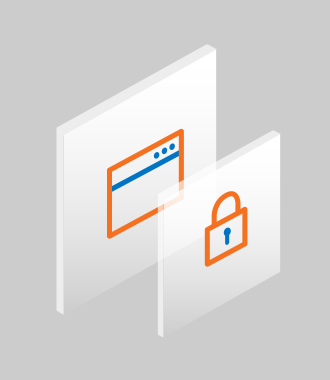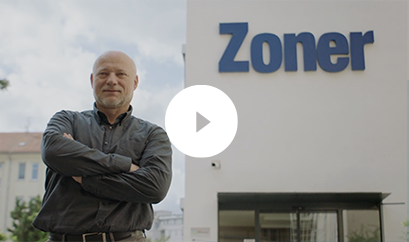
What are DV, OV and EV SSL certificates?
Hint: Every SSL certificate is classified as one
Three levels of brand protection
Level up your website identity safeguards.
Domain Validation (DV)
We check to see that you control a website domain with a one-step process.
Organization Validation (OV)
We verify domain ownership and take eight other steps to verify that your business is legitimate.
Extended Validation (EV)
We vet all of the same details above and more with an 18-step process to ensure your website is valid and in safe hands.
Not every SSL-secured website is authentic
Your certificate determines the level of identity you verify.
Domain Validated (DV) certificates are the easiest SSL certificates to obtain, requiring only a one-step domain verification process. That means not every SSL-secured website signals a safe domain.
To understand what classifies as a DV, OV or EV SSL certificate, you must also understand how certificates are issued by authorized Certificate Authorities (CAs) like GeoTrust. CAs are trusted third parties that issue TLS/SSL certificates by authenticating several details related to a website and its ownership.
Certificates provide two layers of website protection
Encrypting data and securing your brand.
TLS/SSL certificates are two things: first, they provide a secure connection between a website by encrypting the data that is passed between users and the domain. Secondly, certificates verify the ownership and identity of the business or person that owns the URL. Just as a certificate would in the physical world, a digital certificate is essentially certifying your right to represent your business or organization online.

Domain Validated SSL
Domain Validated (DV) certificates are the least-identity-validated SSL certificates and can be obtained quickly and easily—even by a malicious bot. These certificates are low-cost certificates that only require validation that a company or person can demonstrate control over a web domain for which they want to secure a certificate.
To obtain a DV certificate, a website owner will receive a confirmation email from the issuing CA to an email address listed in the domain’s WHOIS record. DV certificates are typically used by websites that do not conduct business or credit card transactions.
Types of websites that use DV certificates:
- Blogs
- Personal websites
- Any website that doesn’t conduct transactions or gather personal information
Organization Validated SSL
Organization Validated (OV) certificates are authenticated with nine validation checks and are considered a mid-level business certificate. With OV certificates, CAs authenticate domain ownership similar to DV certificates.
What distinguishes OV from DV is the steps taken by CAs to authenticate that the business organization (ie. Inc., Corp, LLC, Ltd, Pty Ltd, etc.) affiliated with the certificate is valid and remains in good standing.
Best used on these websites and pages:
- Log-in screens
- Business sites
Extended Validation SSL
Extended Validation (EV) certificates are authenticated with 18 validation checks requiring the highest level of vetting by CAs. EV certificates protect a brand’s identity because of this rigorous process required in order to get them.
On top of all of the authentication steps CAs take for DV and OV certificates, EV certificates require vetting of the business organization’s operational existence, physical address and a telephone call to verify the employment status of the requestor.
Best used on these websites and pages:
- Global banks and financial services
- Fortune 500 companies
- Global 2000 companies
- E-commerce
- Enterprises

